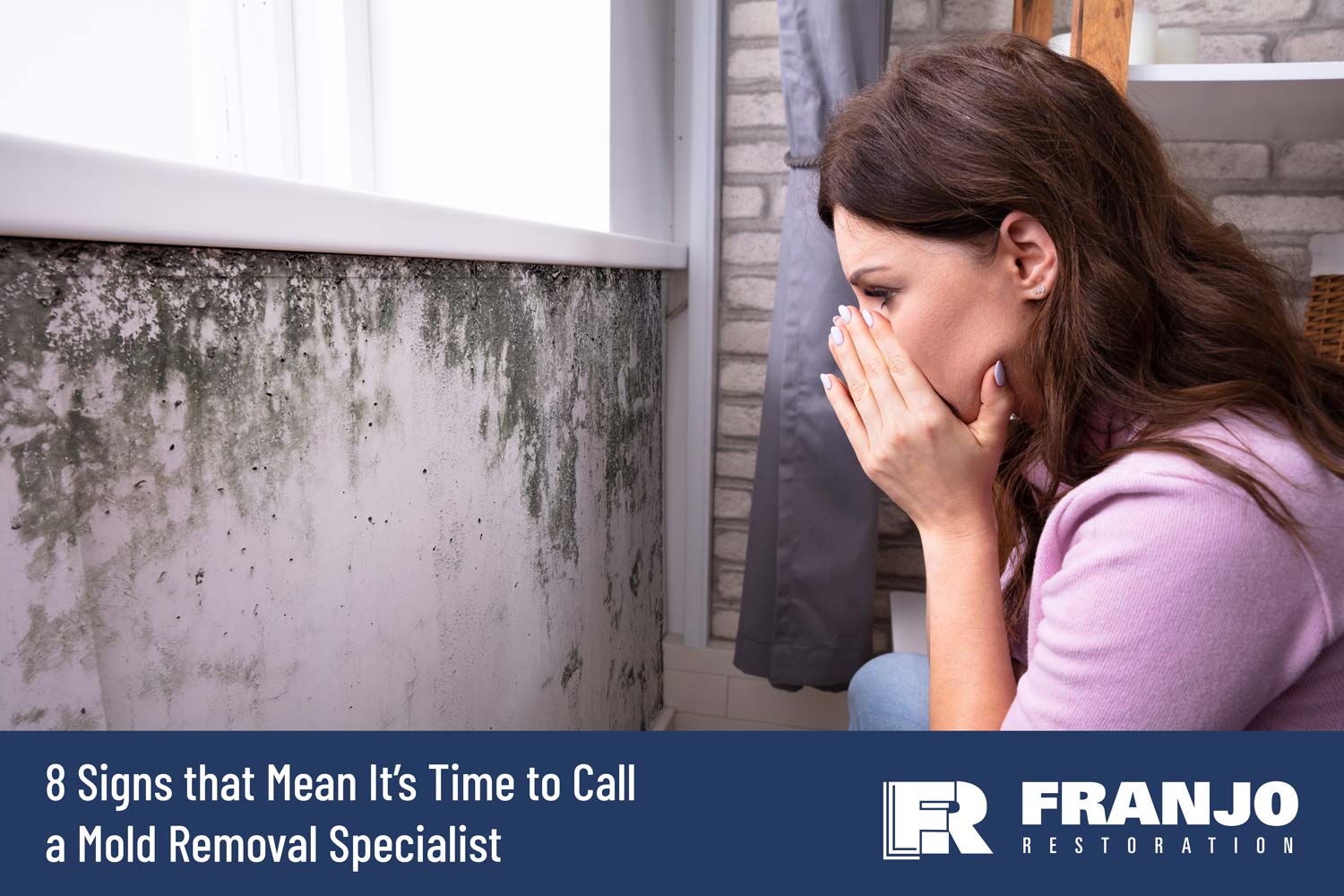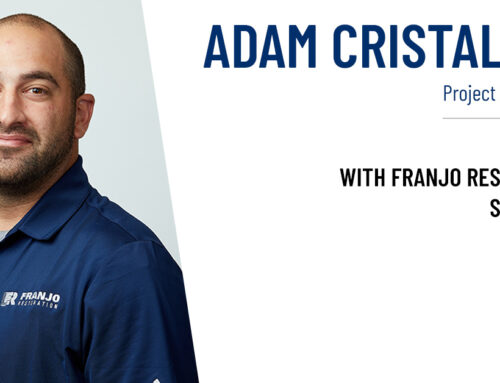Mold can range from pesky to a high-risk health concern, but its presence alone does not cause structural damage; however, it usually means something else is going on. Ignoring the signs will only allow the underlying issue to worsen. By the time you see mold, you’re just seeing the tip of the iceberg. It’s a sign of potential water damage or may follow other types of emergencies, such as a fire or vehicle impact, if not addressed promptly or properly.
First, it is important to identify the signs of mold. Some are visual and easy to find, but others may be less obvious. If you suspect the presence of mold, it’s best to address it right away. Call a professional and request a mold inspection. By the time you see mold, what you’re seeing is the tip of the iceberg, and no amount of scrubbing will remove it. That would be the time to call a mold removal specialist.
If you’re experiencing some of the signs below, it may mean mold is present in your home or office.
- Allergy-like symptoms (runny nose, sneezing, itchy eyes): If these symptoms are more severe, last longer than usual, or become more frequent after spending time in a certain room, it may mean mold is the cause. Its presence can also make it tougher for you to recover from a cold or other minor respiratory infections. Start paying close attention to when and where you experience these symptoms.
- Fatigue: Another tough-to-place physical symptom is fatigue. Everybody reacts differently, but if you find that you’re consistently tired and have ruled out other causes, mold could be to blame.
- Dark grout in the shower tiles: This one is easy to identify and luckily, it’s usually a harmless kind of mold. If you’ve recently experienced water damage or a leak near the shower/tub, it could be signs of something more toxic. Only a trained mold removal specialist can properly handle the situation.
Of course, you may find dark grout in the flooring and kitchen too. Those are often caused by shoes tracking dirt in or splatters during cooking. - Funny smell from Heat or A/C: Mold usually comes with a musty smell but if you only notice it when the air kicks on, it’s probably inside your HVAC system. This occurs often in window units due to the time they spend in the sun or stored away. Depending on the cost of the unit, it may be worth replacing.
- Musty smell, even after cleaning: If you smell a constant musty smell – one that lingers regardless of whether the HVAC system is running or you’ve recently cleaned, it may indicate a mold presence. Check the room, looking behind furniture or in the access panel to your tub faucet. It may be as simple as finding a wet towel that got misplaced. If, after looking, you don’t find an answer for the musty smell, it may be time to call a mold removal specialist.
- Bubbles, cracks, or peels in wallpaper: Bubbling, cracking, or peeling wallpaper goes beyond normal wear and tear. These can be signs of moisture in the wall and provide prime conditions for mold and mildew to form. Not only that, but these are pesky forms of mold damage that are generally easy to spot.
- Discoloration on walls: Mold is usually thought of as round, fuzzy, grey or blue spots, but it can also appear in other shapes, colors, and textures. They can be green, black, brown, slimy, dark or faint, or other combinations. The rule of thumb is that if your walls are discolored, even after cleaning, it may be a sign of mold. Check the immediate surroundings for leaks or uncontrolled humidity.
- Recent Water Damage: Water damage to any area will almost certainly cause mold to grow if not properly remediated. If you have recently experienced any form of water damage, even as simple as an overflow from the sink or tub, it is possible you may have mold. Water quickly seeps into any cracks it finds and can cause mold to grow in places you cannot see or access. The same is true following fire damage or damage to the roof. In this case, you’re better off calling someone who can fill the role of mold removal specialist as well as a water damage restoration specialist.
Remembering these signs can heighten your awareness of potential mold problems. If you suspect there is mold in your property, call a mold removal specialist. They will perform an inspection and advise you of the next steps.




